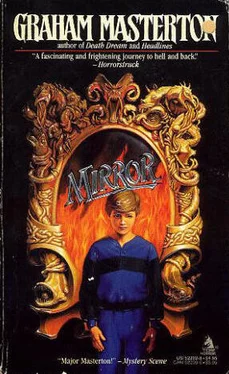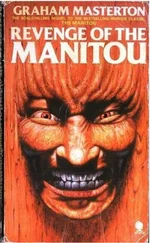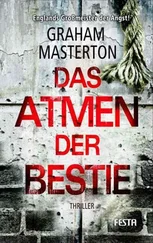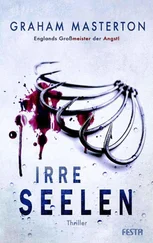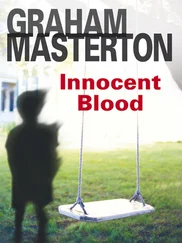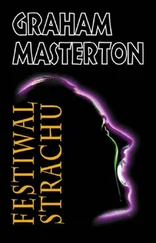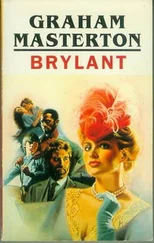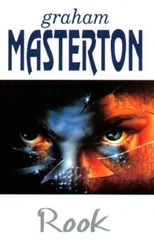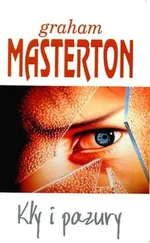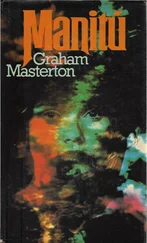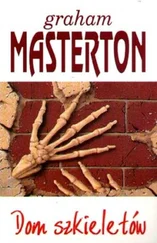'Hmh,' Mr Capelli retorted. 'Maybe I should charge you twice the rent.'
Just then, Mr Capelli's young grandson, Emilio, came out of Mr Capelli's apartment to see what all the noise was about. He was five years old, with straight black hair and olive skin and huge eyes like a sentimental painting of a sad puppy. As soon as he saw they were carrying a mirror, he made faces at himself in it.
'That's a great improvement,' said Martin as Emilio crossed his eyes and squashed his nose flat with his finger.
'Hey, that's my grandson you're talking about,' Mr Capelli protested. 'He's a good-looking boy.'
'That's because he doesn't take after his grandfather,' Martin said, grinning.
'Treble the rent!' retorted Mr Capelli.
'Watch yourself, Emilio,' Martin warned. 'This mirror's real heavy. You don't want to get squished.'
'I do too want to get squished,' Emilio told him cheekily. 'That can be arranged,' said Martin under his breath.
When Mr Capelli had gone, Martin carefully took down all his Boofuls photographs and cuttings. Then he dragged the mirror noisily up against the wall beside his desk. There were four brass plates at the side of the mirror, two on each side, which had obviously been used to screw the mirror firmly into the chimney breast over Boofuls' fireplace. Martin rooted around in his desk drawer until he found four two-inch screws and half a dozen wall plugs. Jane had taken his electric drill, but the wall was quite soft, and he was able to gouge out four holes in the plaster with his screwdriver.
It took him nearly an hour to fix up the mirror. But when it was screwed firmly into place, he stood back and admired it and didn't regret for one moment that he had spent all of his savings on it, even if Mrs Harper had probably screwed him for two or three hundred dollars more than it was actually worth. With its gilded frame and its brilliant glass, it gave his apartment a whole new dimension, adding light and space and airiness.
He poured himself a glass of wine. Then he sat down at his desk. Portrait of a successful young screenwriter feeding a sheet of paper into his typewriter. Portrait of a successful young screenwriter knocking next season's A-Team into shape.
He worked all afternoon. The sun began to steal away, sliding out of the room inch by inch, lighting the building next door, then shining on nothing but the tallest yuccas in the street outside.
BA: I swear — if this fruitcake don't stop — I'm going to
take him apart. Hannibal: Come on now, BA, we're talking comradeship here.
Shoulder to shoulder.
It was well past seven when Martin switched off his typewriter and sat back in his chair. He knew that he was going to have to rewrite the scene in which Hannibal disguises himself as a monk, but apart from that he was just about finished. He was particularly pleased with the moment when Murdock starts juggling pool balls and B.A. joins in the juggling act in spite of himself. He jotted on his notepad, 'Can Mr. T juggle? If not, can he be taught? Are there any brilliant black jugglers? There must be! But what if there aren't? Can some white juggler black his hands up and stand right behind him while he dummies it?'
He poured himself another glass of wine. Maybe his luck was going to change, after all. Maybe some of Boofuls' success would radiate out of his mirror and bless Martin's work. Martin raised his glass to himself and said, 'Prost!'
It was then, in the mirror, that he saw a child's blue and white ball come bouncing through the open door behind him, and then roll to a stop in the middle of the varnished wood floor.
He stared at it in shock, with that same shrinking-scalp sensation that he had felt this afternoon when he had seen Mrs Harper floating in midair. 'Emilio?' he called. 'Is that you?'
There was no reply. Martin turned around and called, 'Emilio?' again.
He got up out of his chair, intending to pick the ball up, but he was only halfway standing when he realized that it wasn't there anymore.
He frowned, and walked across to the door, and opened it wider. The passageway was empty; the front door was locked. 'Emilio, what the hell are you playing at?'
He looked in the bedroom. Nobody. He even opened up the closet doors. Just dirty shirts and shorts, waiting to be washed, and a squash racket that needed restringing. He checked the bathroom, then the kitchen. Apart from himself, the apartment was deserted.
'Hallucination,' he told himself. 'Maybe I'm falling apart.'
He returned to the sitting room and picked up his glass of wine. He froze with the glass almost touching his lips. In the mirror, the blue and white ball was still there, lying on the floor where it had first bounced.
Martin stared at it and then quickly looked back into the real sitting room. No ball. Yet there it was in the mirror, perfectly clear, as plain as milk.
Martin walked carefully across the room. Watching himself in the mirror, he reached down and tried to pick the ball up, but in the real room there was nothing there, and in the mirror room his hand appeared simply to pass right through the ball, as if it had no substance at all.
He scooped at it two or three times and waved his hand from side to side exactly where the ball should have been. Still nothing. But the really odd part about it was that as he watched his hand intently, it seemed as if it were not the ball that was insubstantial, but his own fingers - as if the ball were real and that reflection of himself in the mirror were a ghost.
He went right up close to the mirror and touched its surface. There was nothing unusual about it. It was simply cold glass. But the ball remained there, whether it was a hallucination or a trick of the light, or whatever. He sat in his chair and watched it and it refused to disappear.
After half an hour, he got up and went to the bathroom to shower. The ball was still there when he returned. He finished the wine, watching it all the time. He was going to have a hangover in the morning, but right now he didn't much care. 'What the hell are you?' he asked the ball. He pressed his cheek against the left side of the mirror and tried to peer into his own reflected hallway, to see if it was somehow different. Looking-Glass House, he thought to himself, and all those unsettling childhood feelings came back to him. If you could walk through the door in the mirror, would the hallway be the same? Was there another different world in there, not just back to front but disturbingly different?
In his bookshelf, he had a dog-eared copy of Alice Through the Looking-Glass which Jane had bought him when they were first dating. He took it out and opened it up and quickly located the half-remembered words.
Alice was looking into the mirror over her sitting room fireplace, wondering about the room she could see on the other side of the glass.
It's just the same as our drawing-room, only the things go the other way. I can see all of it when I get upon a chair - all but the bit just behind the fire-place. Oh! I do so wish I could see that bit! I want so much to know whether they've a fire in the winter: you never can tell, you know, unless our fire smokes, and then smoke comes up in that room, too — but that may only be pretence, just to make it look as if they had afire. Well then, the books are something like our books, only the words go the wrong way: I know that, because I've held up one of our books to the glass, and then they hold one up in the other room. But now we come to the passage. You can see just a little peep of the passage in Looking-Glass House, if you leave the door of our drawing-room wide open: and it's very like our passage as far as you can see, only you know it may be quite different on beyond.
Читать дальше
